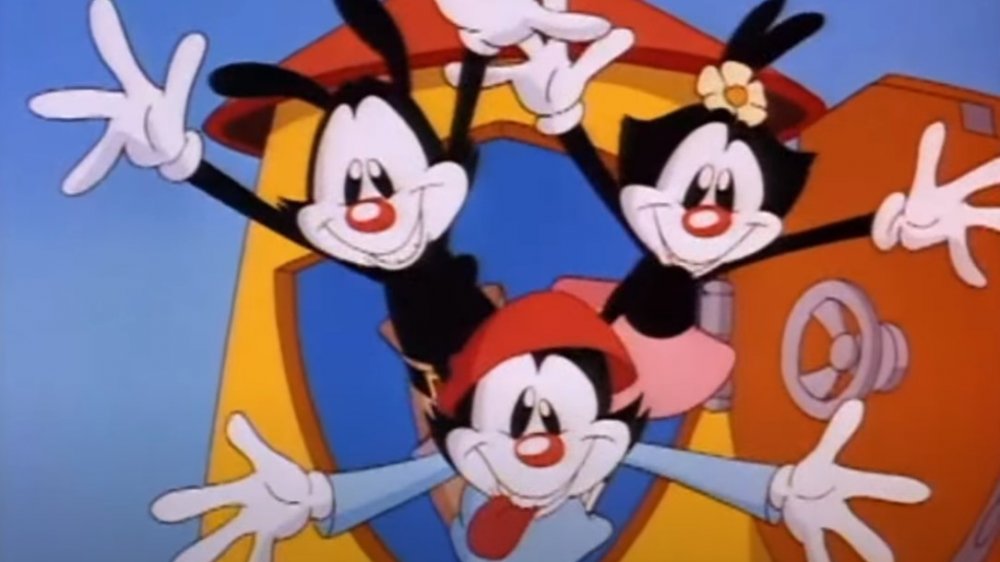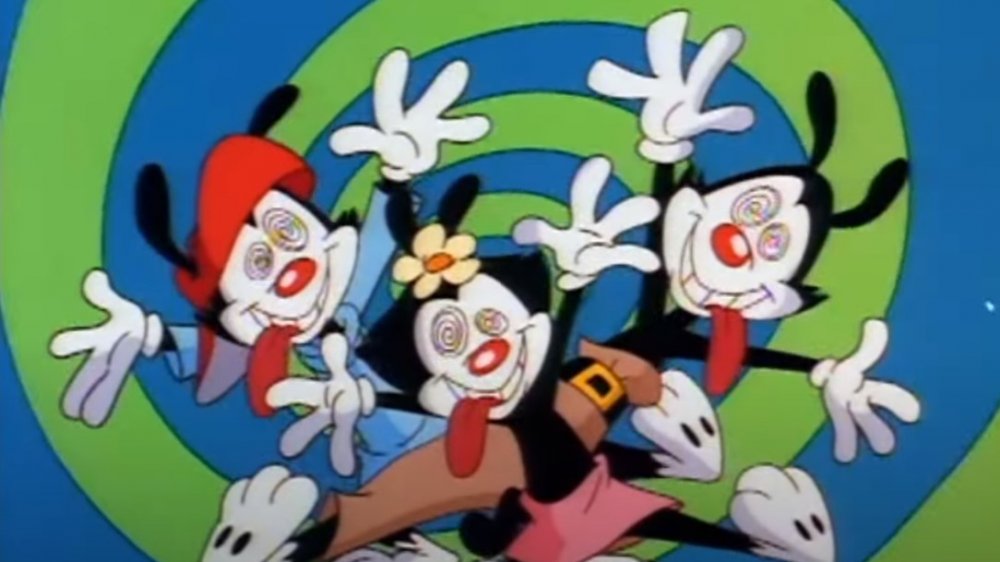This Is Why Animaniacs Had To Be Canceled
With an open heart and a gentle disposition, few crimes are unforgivable. But even the most forward-thinking, soft-handed, and Fred Rogers-esque among us would have some harsh words prepared for the studio executives in charge of axing television programs. They've taken so much over the years. If it wasn't for them, Firefly would be in its 18th season and Doctor Samuel Beckett might have returned home.
Arguably most egregiously of all, in 1998, the Warner Brothers (and the Warner sister) were locked away in the water tower for the long haul when WB pulled Animaniacs from their schedule after a scant 99 episodes. True to form, Yakko, Wakko, and Dot refuse to stay confined, and are currently set to return in a streaming, minty-fresh Hulu reboot in the latter half of 2020.
During its debut season, Animaniacs was one of the highly rated children's programs on television. So why were they canceled in the first place? Like the kid who plays gin with all the lunch ladies during recess, the problem wasn't the popularity, it was the age group they were popular with.
That's showbiz for you
After moving from the Fox network to the WB, Animaniacs retained a sizable audience. It just wasn't the audience that the WB wanted.
If you were an adult watching the show in the 1990s, or if you've revisited episodes since then, you'll have realized that Animaniacs was replete with jokes designed to fly over the heads of its younger viewers. For every good-natured "it's fun and it's educational!" segment, there was a nurse to say "hello" to or a Prince to be, well, you know. According to a Reddit AMA with the show's creator, Tom Ruegger, they got away with a lot by telling the studio that Steven Spielberg thought it was funny.
The upshot was one of the most bitingly hilarious kid's programs in history. The down side: the show's largely adult audience wasn't exactly the target demo for action figures and Cinnamon Toast Crunch commercials. A difficult show to sell to advertisers became an expensive hassle, and Ruegger went on to state that the death knell came when the WB was offered Pokemon episodes on the cheap. Big numbers from a cheap, marketable source ended the Warner's all-too-brief reign.
Or, to put it another way, Pikachu killed the Animaniacs. Imagine having the thunder stones to try something like that.
Goodnight, everybody.

